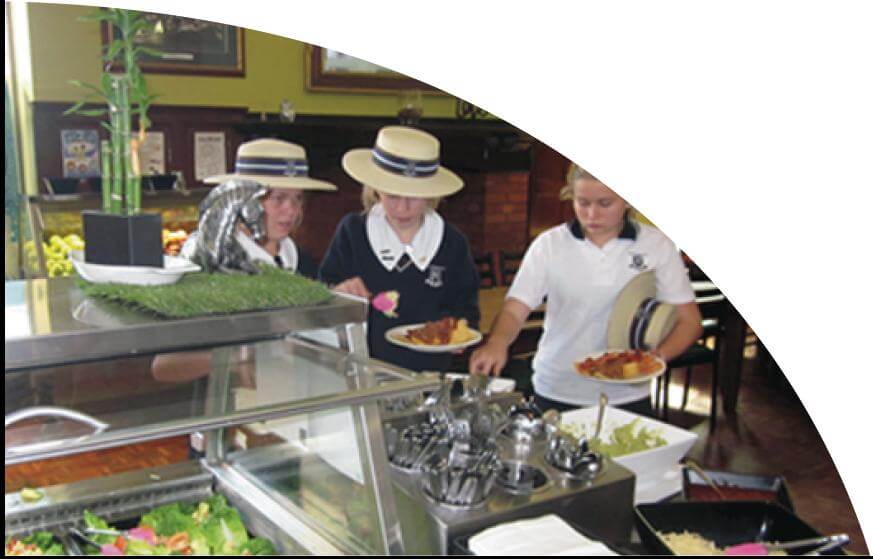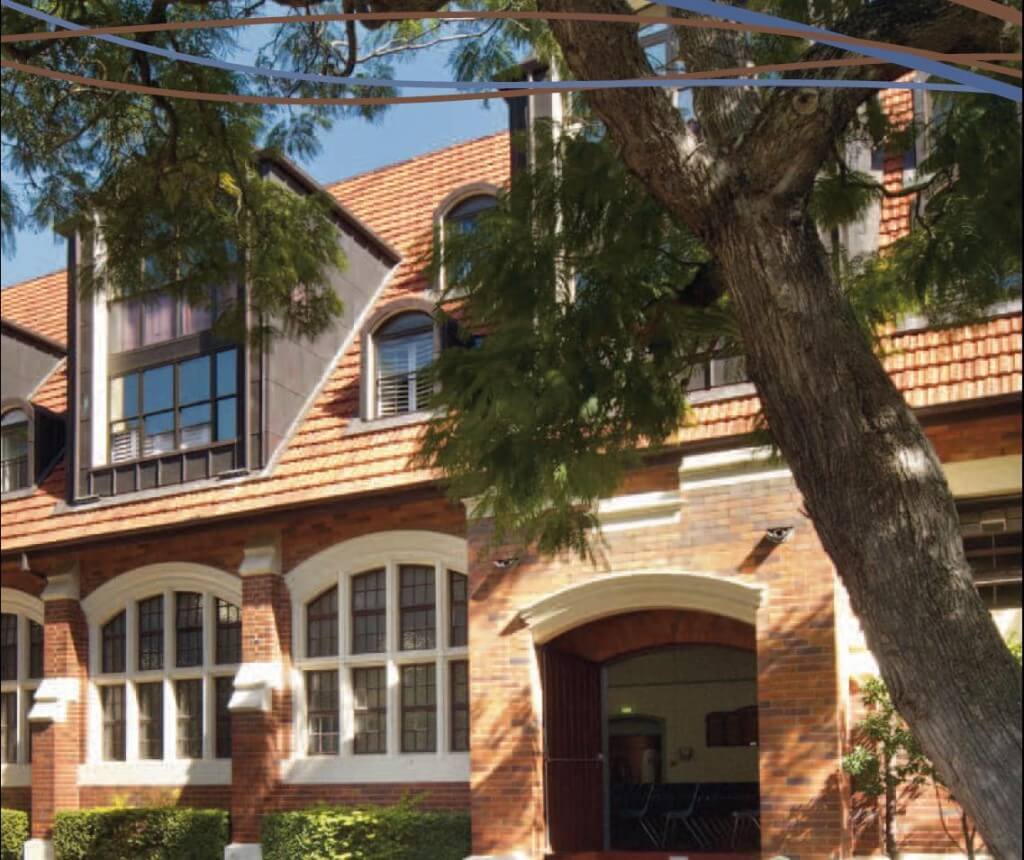Sometimes the coincidence of reading blog posts and discussing things with friends merge to create the perfect storm to contemplate the depths of life. Today, I hope to write a more thoughtful, philosophical post and given that’s not my normal modus operandi, it might come off confused, garbled or incoherent. It will also be rather wordy!
I’ve established that it’s close to impossible to separate your current situation in life from your childhood. How you grew up bears a significant shadow into your adulthood. That’s not to say that one’s childhood will reflect their adulthood (financially poor youth won’t mean financially poor adulthood for example), but whatever the formative 18 years of one’s life exposes them to will strongly impact the rest of their life, and the relative feeling of comfort they feel within the echelons of society.
‘Feeling poor’ is something that can’t be denied. However, it is strongly linked to the community you’re within. I spent the first 10 years of my life in a large home, with my parents and siblings. I attended a (free) public school, I enjoyed (free) public dental care, and my parents drove second hand cars. As children, we seldom went out for dinner, and never got to eat when at the shopping centre or any other excursion – it was always a supermarket visit followed by a picnic in the park, at best. I felt comfortable, and I didn’t feel my parents had any trouble with money. In retrospect, I know that my early primary school years coincided with a downturn in the economy, and may have impacted on the ‘luxuries’ I experienced, such as eating ‘out’. Compared to my public school classmates, I felt I was the same. No better or worse, in some regards, they seemed to have a ‘better’ life as they enjoyed going to amusement parks, something we’d never done as a family.

source: www.stmargarets.qld.edu.au
When I was 10, a collection of circumstances coincided. My father was offered an job overseas, which covered all tuition for his children. I was offered an academic scholarship at a prestigious boarding school, that covered half my tuition fees. The combination of these two factors presented my parents and myself with two options:
- I could study ‘in country’ and live with my family, but my education would be in French (I am a native English speaker)
- I could study in my home town of my childhood, and attend a boarding school
Regular readers (or anyone who started reading yesterday!) will know that I chose to go to boarding school. Honestly, I was presented with both options, but I was pretty clear that the opportunity to ‘sleep over’ every night, and be independent was pretty appealing. Financially, my parents were not impacted between the two decisions. Emotionally, there was a huge learning curve for us all! That being said – I chose boarding school, and my mother ALWAYS wanted to board herself, and so encouraged my choice. Over the seven years I lived at school, my mother repeatedly was asked ‘how she could do it’ by her colleagues and friends. As a family, we never questioned boarding school. Despite the emotional moments, I mostly LOVED my independence, and my parents wanted nothing but my happiness, but it’s hard to ignore that I was receiving a quality education with all the additional opportunities that a private school can offer young ladies.
Whilst my scholarship endured for my eight years at the private girls’ school, my father’s employer changed during those eight years. Therefore, the cost of my education borne by my parents also fluctuated. Furthermore, I have two siblings, and when they reached the age for high school, they too were enrolled in private schools. My parents had always prepared all of us for a high school education in a religious private school. I just started mine three years early due to the circumstances!

source: source: www.stmargarets.qld.edu.au
I cannot deny that I was privileged to attend a fancy private school for eight years AND live on campus for seven of those years. I have to balance the idea that, by the grace of God or serendipity, I was offered a scholarship; and my father was offered a comprehensive remuneration package to relocate for three years. I know the cost of educating my younger siblings did not come as easily. Neither had their fees subsidised (by employers or scholarships/bursaries). Perhaps inflation of school fees outstripped the pay rises my parents received, or it was a case of ‘two is double the cost of one’? (Thankfully, they avoided all three of us at private schools at once! Family planning (or not) seemed to have it’s blessings occasionally).
Whilst I feel like I might have excelled academically no matter my education, it’s hard to know for sure. From a strong foundation in my secondary education, I received the marks to be granted a first year scholarship in engineering. Engineering was not my first choice, but a scholarship was enough to entice me to try it out. For six years, I battled my studies – there is NO way I would say being a student was the best time of my life. (being a young, paid, professional is FAR better!). I chose to support myself from my second year of studies, covering all of my costs – rent, food, tuition (which can be deferred in Australia).
Approaching graduation, I swallowed a bitter pill and moved home – after six years of loud and regular berating of friends who lived at home with their parents through their tertiary studies! When I looked at the figures, I saw there was no way I could ‘get ahead’, which in Australian is ‘buy a property’. I chose to move home months before completing my studies, and stayed at home for the first three years I worked in my career. Living at home is a luxury I didn’t have through my secondary schooling, nor some of my primary schooling. I self imposed my tertiary studies to be self supported. However, when I joined a graduate program with six month rotations around the business (ie locations all over Sydney), I returned to the family home and (willingly) paid a nominal amount in board. During this time, I aggressively saved, whilst taking annual international holidays and bought my scooter. I wouldn’t even be as gauche as to say living at home was a sacrifice. I love my parents, they live relatively close to the city, and their home fits all us kids (with less formal living spaces becoming bedrooms!). After three years of paying below market rent, and having meals and chores done as part of a family, I had sufficient money to put a deposit on the loft. My parents did not co-sign on my mortgage, which I knew they never would. They did not gift me any money, nor did any other relative, beyond the usual $50 Christmas money or similar.

source: www.gsu.uts.edu.au
I’m grateful to God that my life has lead me to where I am now. That I had the privilege of a good education (and the associated opportunities of sport, music, debating etc) in my childhood. I had the luck to find that my parents lived ‘nearby’ at the end of my tertiary studies (in actual fact, they did from my second year onwards!) My choice of subjects and my results from high school led to my studies in university, which lead me to a career as an engineer. Now I earn a salary I couldn’t have imagined as a teenager, and I earn close to or on par with both my parents (one is a teacher, the other is a ‘banker’ but also qualified as a teacher). I own a property, that I bought ‘all by myself’ – no mean feat in Sydney’s inflated property market.
Last night, I was embarrassed by the good fortune I list in the paragraph above. I know that without my mother who had a private high school education at a school that offered boarding, I may not have had parents receptive to boarding school. Without the chance of my father’s employer and package, I might not have had the chance to start my private education so young. Without my parents choosing to settle in the city I was at university at (which is different to where I grew up/went to school), I might still be struggling to save for a housing deposit. I look back, and see a ‘normal’ everyday kid starting life, and from the age 10, my life took an early trajectory beyond what was planned for me.
I still feel ‘normal’, but I realise I’m not. I’m in the top x% – I don’t know if it’s 10% or 5%. But I know I’m lucky, I’m privileged. And all this, after spending eight years at a school where I felt ‘poor’, ‘uncool’ and not good enough. Not good enough at sport. Not smart enough at my high school classes – as if coming eighth in a number of my senior subjects in a cohort of 140 is a poor outcome. I passed every subject at uni, first go – except for one subject I failed FOUR times! That one subject, and the four attempts (over three years) made me think I was dumb, useless, and perhaps not cut out for engineering. It’s amazing that my perseverance, and a solid job offer as I approached graduation, helped me persuade university management to ‘waive’ the pre-requisite requirements, and let me attempt the following subjects – all of which I passed. It led me to a job that I still have days where I think ‘how did I end up here, I am SO out of my depth?’ and moments when a colleague thinks out a situation and in my head I’m thinking ‘how does he know this??’.
I suppose it’s like a fat person trapped in a skinny body, or a young person in an older body. I feel like a normal, working class child (now adult), who somehow infiltrated a prestigious school. A less than stellar intelligence that scrapped through an engineering degree. A recruit/graduate who ‘won’ a job at a very generous company (pay wise, but also benefits) despite there being clearly more knowledgeable applicants. I’m the girl who started with humble beginnings – a family with used cars, never eating out, living a simple childhood, to this adult who was able to buy their own home, has a (traditional) degree and a very well renumerated job with great hours and benefits.
There but for the grace of God go I.
I really don’t have a hard luck story, and sometimes I’m ashamed of that. I didn’t crawl out of debt, or a horrible home life or childhood. I didn’t battle ‘incredible odds’. I hope that forever, I can remain grounded; aware that there are so so many less fortunate than myself, and have the humility and generosity to share everything I can. I can’t change what went before, but I can look forward and continue to be someone who makes everyone feel included, no matter what circumstances their life has presented them.
How do you feel your childhood has influenced your later life?

Thanks for sharing this, Sarah! I'm sure you realize that although you had advantages, you also developed good character and worked very hard. My childhood was much like your first 10 years. I went to public schools and so did everyone else I knew. I went to a local university on scholarship and lived at home because neither I nor my family could have afforded it otherwise. But in allowing me to live at home rent-free, I graduated without debt. I worked part-time but only made enough to cover books and transportation. I could not agree more that being a new professional is better than being a student 🙂 It does bother me sometimes when people now accuse students of freeloading off their parents, getting too far into debt, or not working their way through school. At least here, tuitions and living costs are so high that most students can't put themselves through school without help anymore – times have changed.
I think I thought I might 'freeload' off my parents too, and always thought I was meant to leave home at 18/graduating high school. In reality, the cost of doing that can be quite high even with public universities or scholarships – just the rental costs are high (and often can't be artificially reduced 'just' for students). That being said, I do think students should work and study. Mainly cause I did – but because it adds value to their experience side when it comes to their post study work, and it also helps them value the cost of money. Not that you can't understand money without earning your own, but there's nothing like having to fully fund something yourself to start to realise the balance you need to strike.
I do hope that some of my good fortune is attributed to hard work – but I always think 'I could work harder'. Which at times, sounds like pure insanity! I certainly try to have a good character, but it's a daily challenge to maintain.
Wow…Sarah, the thing that stands out is how unique your story is. I don't know anyone else with a life story like that. Your whole family has worked so hard and made really difficult life decisions to earn what you have now. It must have been hard along the way but your whole family must be proud of how things have worked out, especially when your poor Mum had people questioning her like that!
I admit, I have also wondered about the 'back story' to the boarding decision and it is interesting that you had definite opinions as to what you wanted to do as a 10 year old. My son (nearly 10) is also very adamant about his schooling options at this point. He's inexperienced, but I think a 10 year old can still have a surprisingly clear view of what is 'right' for them.
My childhood was very working class (tradesman father, rural area, financial constraints.) I was the first in my family on both sides to make it to the end of high school, then through University. I think possibly I would have aspired higher in my career if I'd had different schooling or advice; but then also, maybe not. I feel incredibly grateful for the opportunities I've had, with a family who encouraged us to look outside the confines of our environment.
I completely agree that at 9/10, you're capable of some very mature decisions! I'm glad I was given a choice, and my choice was accepted too.
Congratulations on making it first through high school and then university – I'm sure there were many challenges along the way, and without family to look up to, it might have been easier to let things go. But as you say, it's not so much doing what your parents did, but having parents who can dream bigger for their children, and support them as they achieve beyond what their families have ever known.
I know my parents are proud of me, although I think my brothers probably struggled with understanding the 'boarding school' absences. Only because they weren't in a culture where it was common – I think country kids are more accustomed to the coming and goings of high school aged kids, but I wouldn't really know!
I think it is brilliant that you persevered with your engineering. Great stuff!
I can see you loved boarding and clearly your mother did too. But I am glad we couldn't afford boarding school for my boys. (Not that living in Sydney lends itself to that decision unless you are in the top 1%.) I'm with your mother's friends. Mr Sans and I just loved having our boys with us.
My eldest, the one doing an engineering double degree at Sydney (a mum's little brag there), is a freeloader. But I am OK with that; he will work long enough in his life. I can see him staying with us for quite a while, though he would like to live in the inner city.
My childhood was very, very poor. And I moved a lot. So I have tried to give my children stability. I know people earn a load more than me in Sydney (including engineers lol) but compared to most, Mr Sans and I very well off. And, despite her lack of education and income, my entry to university was thanks to my mother's hard work, motivation and encouragement (and Thanks to Gough Whitlam who provided free university education so that the working class and even lower class could attend). So my childhood has influenced me by making me value education, hard work and commitment. And to spoil my sons.
(And like your mother I wouldn't go to Amusement parks, not from lack of money but, really, they are ghastly.)
You're right about the top 1% in Sydney – I couldn't believe kids lived in Sydney and parents *still* paid for them to be weekly boarders. And when I say 'lived in Sydney' I mean within minutes of the school I worked at!!
I know to this day my mother would love to have me living at home – actually I plan to 'sleep over' there tonight (BF's out of town, and I have a meeting out that way)!
Gough Whitlam was the only reason my father went to university too, so I know it made a big difference for a generation.
That second to last paragraph reminds me of something called Imposter Syndrome. It's actually really common among people who have gone through Engineering and other strenuous programs (I know I sure feel it). It might be worth giving it a quick look over if you've never read about it before.
Thanks for the info Cassie – I will definitely look into the Imposter Syndrome some more
Very interesting! I love that your parents asked for your thoughts/opinion about boarding school. When my parents gave me choices as a kid, I felt so mature – I think it made me take things more seriously. It sounds like you had some fortunate circumstances but you also had to work diligently for extended periods of time . . you can definitely take some of the credit for how well things are going for you! 🙂
It does make you feel very grown up to be included in what are big decisions in your life, and I appreciate my parents involving me.
Thanks for you kind words, there's definitely been some work involved!